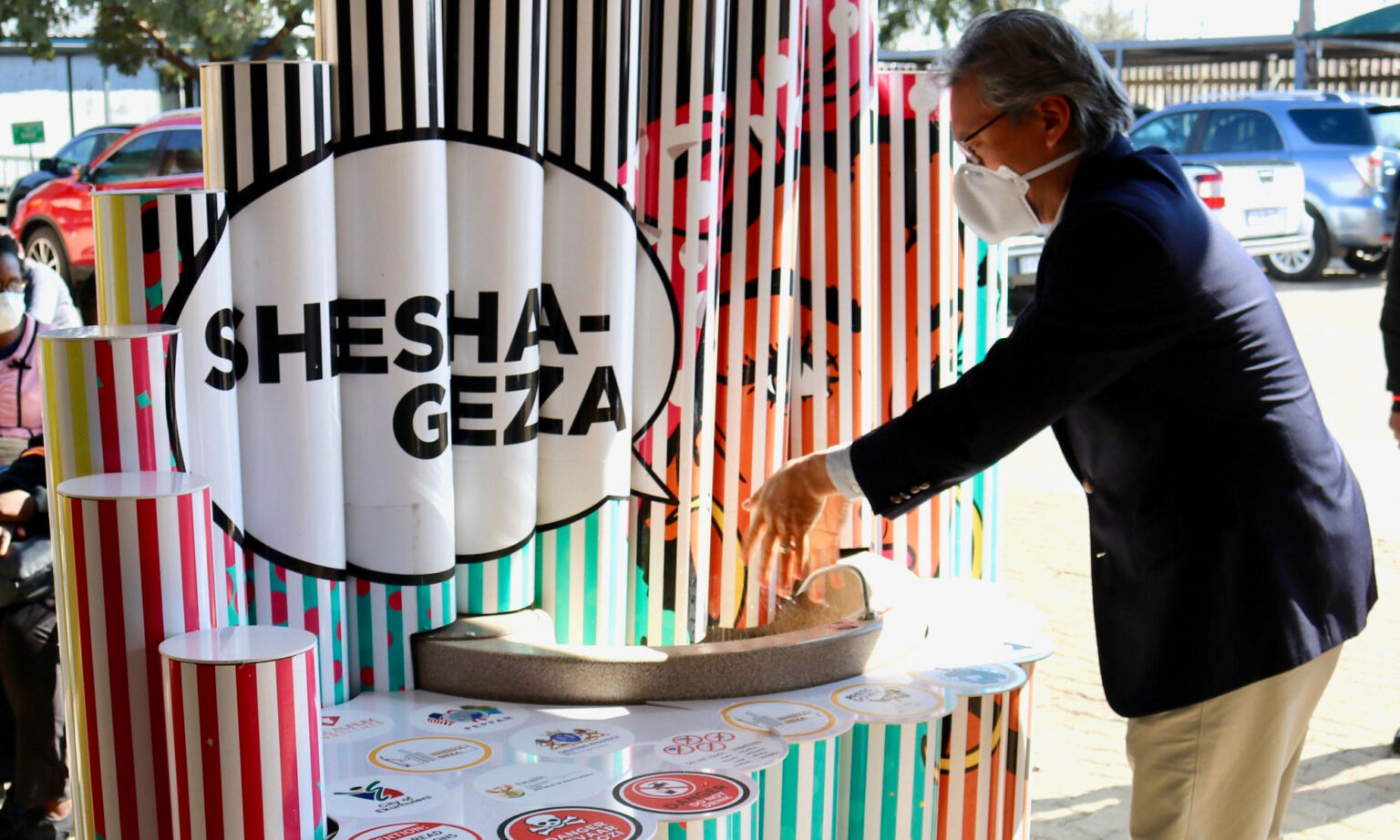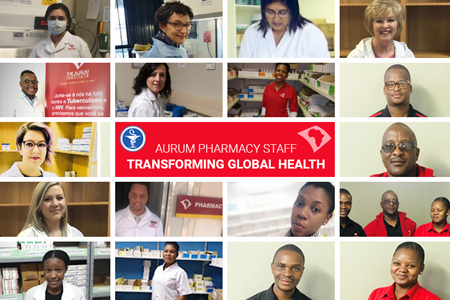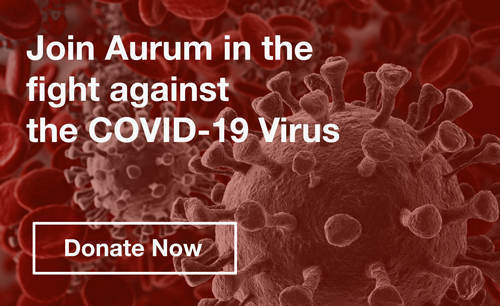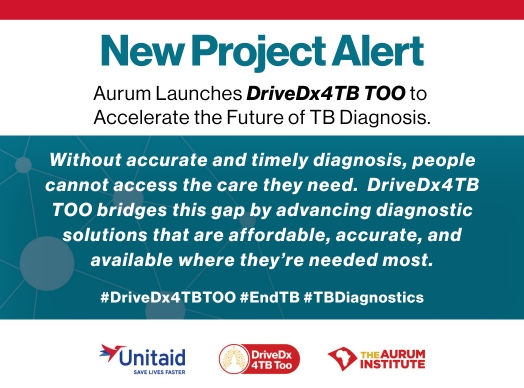- On Global Handwashing Day, we reflect on this partnership which has enabled Aurum to donate 250 Shesha Geza hand washing stations to schools and healthcare facilities in the areas we support- Ekurhuleni and 3 districts in the North West.
The U.S. President’s Emergency Plan for AIDS Relief (PEPFAR) and its partner, The Aurum Institute (Aurum), have launched innovative mobile hand hygiene stations, aptly named Shesha Geza, which means “hurry up and wash” in isiZulu. The stations have been placed at several public health facilities in Ekurhuleni, Gauteng, as part of efforts to help curb the spread of COVID-19.
Funded through the U.S. Centers for Disease Control and Prevention (CDC) South Africa, Aurum has rolled out 15 hand hygiene stations valued at R375,000 in total at clinics throughout Ekurhuleni in May and June. An additional 36 units will be deployed across Ekurhuleni and the North West Province in June and July, in staggered fashion as part of phase 2.
20 000 hand washes
The Shesha Geza handwashing stations feature a diluted, chlorine-based sanitizer liquid, which can be utilized to sanitize hands when washing with soap or using an alcohol-based hand rub is not feasible or available. In this case, a chlorine solution is both more feasible and cost effective than other alternatives for the locations where Shesha Geza units are deployed. The stations are operated by a foot pump to reduce the need to touch water faucets. Balancing mobility and water storage capacity, the 600-liter tank equates to 4,000 hand washes per one cycle. The water in the tank can be used safely for a minimum of 5 cycles, facilitating over 20,000 hand washes before needing to be refilled. The design also allows for hand washing with soap as an alternative to the diluted chlorine-based solution where feasible.
Hand hygiene is an important part of the South African response to the international emergence of COVID-19. Practicing hand hygiene, which includes hand washing with soap for a minimum of 20 seconds, using alcohol-based hand rub, and, where necessary, use of a diluted chlorine-based solution, is a simple yet effective way to limit the spread of COVID-19 and other infections. CDC recommendations reflect this important role.
“We know that hand hygiene helps to remove pathogens and prevent the spread of disease, so practicing frequent hand hygiene is recommended,” says CDC South Africa Acting Country Director, Dr. Romel Lacson.
“Smart and safe, Shesha Geza draws on local inspiration and creativity and the U.S. government is proud to be able to fund such innovative solutions to the challenges faced by local communities. COVID-19 is not a disease that the government, doctors, Community Health Workers, or any other special group of people can fight on their own. It is one that will require all of us to work together to overcome. Each person doing their best to keep themselves safe by practicing hand hygiene, keeping their distance from others, and wearing masks to reduce the spread of germs to those around them– this is what’s required to bring this global outbreak to an end and save hundreds of thousands of lives,” says U.S. Ambassador to South Africa, Lana Marks.
Collaborations
U.S. PEPFAR has partnered with the Government of South Africa to support HIV care, treatment, and prevention since 2004, investing more than $7.25 billion (over R100 billion) in programs here. Shesha Geza is one example of recent collaborations between U.S. PEPFAR and the Government of South Africa to mobilize U.S. PEPFAR resources to counter the COVID-19 epidemic, while still advancing the core goal of supporting people living with HIV. U.S. PEPFAR remains committed to ensuring that all South Africans have the opportunity to live longer, happier, more productive lives, and to preventing new HIV infections.
Source: https://za.usembassy.gov/u-s-pepfar-funds-local-handwashing-innovation-shesha-geza/














